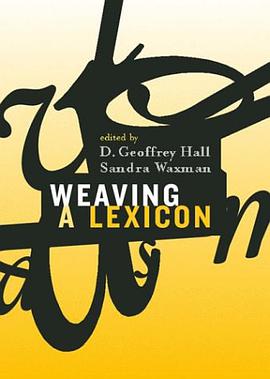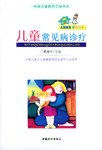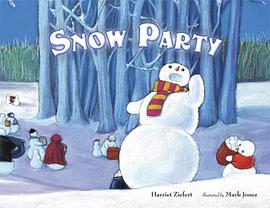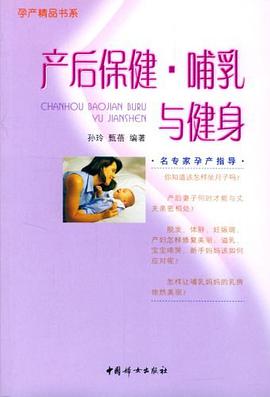
具体描述
The studies in Weaving a Lexicon make a significant contribution to the growing field of lexical acquisition by considering the multidimensional way in which infants and children acquire the lexicon of their native language. They examine the many strands of knowledge and skill -- including perceptual sensitivities, conceptual and semantic constraints, and communicative intent -- that children must weave together in the process of word learning, and show the different mix of these factors used at different developmental points. In considering the many different factors at work, the contributors avoid both the "either-or" approach, which singles out one strand to explain word learning throughout childhood, and the "all-inclusive" approach, which considers the melange of factors together. Their goal is to discover precisely which strands of ability or understanding make which contributions to acquisition at which points in infancy and childhood.The nineteen chapters are arranged in two broadly thematic sections. The chapters in "Initial Acquisitions," focus on issues involved in word learning during infancy, including how learners represent the sound patterns of words, infants' use of action knowledge to understand the meaning of words, and the links between early word learning and conceptual organization. In "Later Acquisitions," the chapters treat topics concerning the stages of toddler and preschooler language acquisition, including part-of- speech information in word learning, the proper-count distinction, and a comparison of verb acquisition in English and Spanish. Because the contributors present their work in the broader context of the interconnection of different processes in lexical acquisition, the chapters in Weaving a Lexicon should suggest new directions for research in the field.
作者简介
Infants and young children naturally and spontaneously acquire thelexicon of their native language. This accomplishment is a topic ofcentral interest in the cognitive sciences, because it raises core ques-tions in psychology, linguistics, philosophy, computer science, and related Fields. The past several years have witnessed an impressiveaccumulation of new knowledge about the learning of words. Recentdiscoveries in developmental psychology have been especially note-worthy, because they have helped to illuminate a process that isinherently multidimensional and dynamic.
In this edited volume, we invoke the metaphor of weaving to con-sider the acquisition of a lexicon. It has become clear that, to suc-ceed in this task, learners weave together many different threads ofknowledge and skill. These strands include perceptual (visual andauditory) sensitivities, general associative-learning mechanisms, con-ceptual and semantic constraints, an appreciation of lexical formclass, and a rich understanding of communicative intent. It has alsobecome evident that children do not intertwine these strands in auniform fashion over the course of infancy and childhood, resultingin a ?at weave. On the contrary, the evidence reveals much moretexture to the fabric of word learning, with children recruiting someabilities and understandings more heavily at some developmentalpoints than at others.
Like infants and toddlers acquiring their native lexicon, develop-mental psychologists seeking to understand word learning must also become adept at weaving. For the ?eld to progress, researchers mustmove beyond cataloging the isolated strands of knowledge or skill that learners use in any given act of word learning. In particular, ithas become important that we abandon ‘‘either-or’’ approaches, inwhich a single thread is held to explain word learning from infancythroughout childhood. At the same time, we must progress beyond‘‘all-inclusive’’ approaches, in which multiple strands are invoked inways that fail to generate falsi?able hypotheses about lexical devel-opment. We believe that breakthroughs in theories of word learningawait the discovery of precisely which threads of ability or under-standing make which contributions to acquisition at which points dur-ing infancy and childhood.
This volume brings together chapters written by leading scholarsin the ?eld of lexical acquisition. Each contribution focuses directlyon one or more of the various strands of knowledge or skill thatunderpin lexical development in infancy and childhood (e.g., per-ceptual abilities, lexical form class sensitivities, social-pragmaticunderstanding). Although the authors have centered their chaptersprimarily on the results of their own research programs, they havealso considered explicitly how their work ?ts into the emerging pic-ture of lexical acquisition as a multidimensional, dynamic task. As aresult, the volume contains many chapters that explore the interac-tions among multiple threads of skill or knowledge at a speci?c pointin development, and/or the unfolding of children’s reliance on aparticular thread over the course of development.
目录信息
读后感
评分
评分
评分
评分
用户评价
读完这本书,我感觉自己像是刚从一场关于语言本质的漫长辩论中抽身出来。这本书的结构非常独特,它不是线性的,更像是一个巨大的、相互连接的思维导图。作者似乎认为,任何孤立的词汇或概念都是没有生命力的,它们必须嵌入到一系列动态的关系网络中才能被真正理解。这导致全书充满了大量的交叉引用和对前文概念的不断回溯和重构。初读时,我经常需要频繁地翻阅前后章节来确认某个术语在不同上下文中的微妙差异,这确实增加了阅读的难度,甚至有时会感到有些迷失方向。但一旦你抓住了作者构建的逻辑主线——那种认为意义是不断协商和流动的观点——你会发现这种结构其实极富启发性。它挑战了我们习惯的“字典式”理解,迫使你跳出固有的认知框架。我尤其欣赏它对“边缘词汇”的处理,那些在主流学术讨论中常被忽略的小众术语,在作者笔下焕发出了惊人的活力,显示出它们是如何悄无声息地影响着宏大理论的构建。这本书更像是一本“反向工程”手册,教你如何拆解现有的语言结构,而不是简单地教你如何使用它们。
评分如果要用一个词来形容这本书给我的整体感受,那可能是“结构主义的迷宫”。作者似乎将所有的精力都放在了构建一个宏大且自洽的理论结构上,而对读者的“易读性”的考虑则退居其次。这本书的开篇部分尤其具有挑战性,它没有提供一个易于上手的引导,而是直接将读者置于一个高度复杂化的概念体系之中,要求你“边走边学”。我花了将近两周的时间才勉强适应了作者自创的一套术语体系,这套体系非常精妙,但同时也非常封闭,几乎需要你完全抛弃以往对相关领域的认知。然而,一旦你适应了这种内部逻辑,你会发现它解释世界的方式具有惊人的说服力。它提供了一个看待事物的新透镜,让你能看到那些传统分析方法所忽略的细微关联。这本书更像是一次对语言学边界的全面试探,作者不断地在已知的知识前沿进行推演,试图构建一个能解释所有语言现象的终极模型。它注定不是一本畅销书,但对于那些致力于在特定领域做出原创性突破的研究者而言,它无疑是一份充满启发性的、近乎“异端”的参考指南。
评分这本书的行文充满了令人惊喜的节奏变化,这一点我非常欣赏。它不像其他学术著作那样一板一眼,而是巧妙地在严肃的理论分析和富有诗意的旁白之间进行切换。有那么几段,作者突然插入了一段关于某个古老文字或失传语言的片段描述,那种文学性的表达一下子冲破了前面积累的知识密度,让人紧绷的神经得到了极大的放松,同时也为接下来的深入探讨做了很好的情感铺垫。我感觉作者在构建这个“词汇编”的过程中,是将自己对文字的热爱融入了最严苛的学术要求之中。这种双重性使得阅读体验非常立体。比如,在论述一个词汇在不同历史时期的“情感温度”时,作者引用了大量的第一手文学资料,使得抽象的概念变得鲜活可感。但即便如此,它的核心依然是扎实的学术研究,那些文学性的插叙更像是为复杂的论证披上了一层优雅的外衣,而非削弱其深度。对于那些希望在深入研究中寻找美感和人情味的读者来说,这本书简直是量身定制的。它证明了严谨的学术探讨也可以拥有令人动容的艺术张力。
评分坦白说,这本书的学术密度令人咋舌。我感觉自己像是被扔进了一个充满专业术语和复杂理论模型的深水区,全靠自己拼命换气。作者的语言风格严谨到几乎有些冷峻,几乎没有多余的修饰或煽情的笔触,一切都以论证的力度和逻辑的精确性为最高准则。阅读过程就像是在解一个层层加密的密码本,每一个章节都像是一个新的密钥。我必须承认,有几处关键论点的推导过程,我不得不停下来,拿出笔和纸,手绘流程图来帮助自己梳理作者的思路,否则很容易就跟不上了。特别是关于语义场的动态变化和词汇权力结构的那几章,涉及到的跨学科知识面非常广,从社会学到符号学,都有深入的探讨。这本书的价值在于它提供了一个极其精密的分析工具,让你能用一种近乎科学解剖学的方式去审视日常语言。它毫不留情地揭示了语言中隐藏的等级制度和权力分配,读完后,你再看任何新闻报道或者政策文件,都会不自觉地带上一种批判性的审视滤镜。它不是一本让人读着舒服的书,但绝对是一本能让你思考方式发生质变的书。
评分这本书,我真是下了好大力气才啃完的。拿到手的时候,封面设计就挺吸引人的,那种带着点复古的排版,让人联想到某种深奥的知识体系。不过,真正读进去才发现,它更像是一趟漫长而曲折的探索之旅,而不是那种能让你迅速获得答案的工具书。作者的叙事风格非常注重细节,每一个概念的引入都伴随着大量的历史背景和哲学思辨。我特别喜欢他处理那些模糊地带的方式,他似乎并不急于给出一个明确的定义,而是更热衷于展示“这个词是如何一步步演化成我们今天理解的样子”的过程。这要求读者有极大的耐心,因为很多章节读起来有点像在爬一座没有尽头的楼梯,每一步都踏实,但总感觉下一层楼的风景才是更开阔的。比如,关于某个核心术语的起源讨论,作者用了差不多三分之一的篇幅去追溯不同文化中早期相似表达的演变,这对于想快速掌握“重点”的读者来说,可能略显拖沓。但如果你愿意沉浸进去,你会发现这种深度挖掘带来的回报是巨大的,它帮你建立起一个无比坚固的知识基架,让你看任何相关的文献时,都能立刻明白其背后的语境和潜在的局限性。总而言之,这是一本需要时间去“泡”的书,适合那些享受思考过程本身大于结果的人。
评分 评分 评分 评分 评分相关图书
本站所有内容均为互联网搜索引擎提供的公开搜索信息,本站不存储任何数据与内容,任何内容与数据均与本站无关,如有需要请联系相关搜索引擎包括但不限于百度,google,bing,sogou 等
© 2026 qciss.net All Rights Reserved. 小哈图书下载中心 版权所有





















